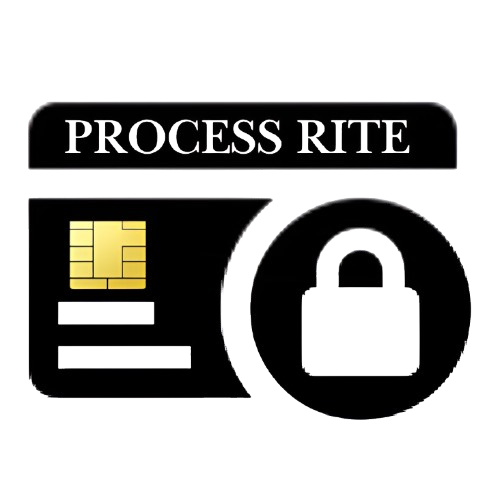In today’s fast-paced business world, a smooth and reliable payment processing system is crucial for maintaining cash flow, customer satisfaction, and overall efficiency. Businesses that fail to optimize their payment processing can experience costly delays, revenue losses, and customer dissatisfaction. In this article, we explore the significance of payment processed systems, offering insights into why they matter and how they can be streamlined for maximum benefit.
What Is Payment Processing?
Payment processing refers to the systems, technologies, and methods used to complete a financial transaction. Whether a customer is purchasing a product online, paying a bill, or subscribing to a service, payment processing ensures that money is exchanged securely and efficiently. It includes the steps of authorizing, verifying, and transferring the funds from the buyer’s account to the seller’s account.
How Payment Processing Works
When a customer initiates a payment, the process begins with them entering payment details (credit card number, bank account info, etc.). This data is sent to a payment processor, which verifies whether the buyer has enough funds. If the transaction is authorized, the payment processor transmits the approval to the merchant, who completes the sale.
The process includes several steps:
- Customer initiates payment by providing their details.
- The payment processor communicates with the customer’s bank to authorize the transaction.
- Once authorized, the funds are transferred to the merchant’s account.
- Finally, the transaction is settled, confirming that the merchant has received the funds.
Types of Payment Processing Systems
Traditional payment systems like credit cards, bank transfers, and checks have been used for decades. These methods are trusted but often involve longer processing times and are more vulnerable to fraud.
In contrast, modern payment systems like digital wallets (PayPal, Apple Pay, Google Pay) offer faster, more secure options. These systems allow customers to make payments without re-entering credit card details every time, improving the user experience and reducing the chances of errors.
Why Payment Processed is Crucial for Your Business
Efficient payment processing boosts cash flow, reduces delays, and enhances customer experience. Businesses that process payments quickly can access funds more quickly, enabling them to invest in inventory, pay staff, and cover operating costs. This streamlined process leads to improved business performance and better financial health.
Moreover, a smooth payment process improves the customer experience. Customers are more likely to return to businesses that provide fast, secure, and easy payment options. Delayed or complicated payment systems can frustrate customers and cause them to abandon their purchases.
The Impact of Slow Payment Processing
Slow payment processing can have serious consequences. When payments take too long, businesses face delays in receiving funds, which impacts cash flow and financial stability. It may also lead to missed revenue opportunities, such as abandoned shopping carts or canceled orders.
Additionally, poor payment processing can harm customer relationships. Customers expect fast and seamless transactions. If payments are slow, there’s a higher chance they will leave negative reviews or seek services from a competitor.
How to Streamline Your Payment Processing
Automating payment processing can significantly improve its efficiency. By implementing automated systems, businesses reduce the risk of human error and speed up the process. Automation helps with tasks such as payment authorization, fraud detection, and even invoicing.
Choosing the right payment gateway is another key factor in streamlining payment processing. Look for a provider that offers low transaction fees, integrates easily with your existing systems, and provides robust security measures to protect your customers’ data.
Common Payment Processing Errors and How to Avoid Them
One of the most common errors in payment processing is insufficient security measures. Without encryption or secure payment gateways, businesses risk data breaches and fraud. It’s essential to ensure your payment processor complies with security standards such as PCI-DSS (Payment Card Industry Data Security Standard) to protect sensitive information.
Transaction failures, such as declined payments or incorrect information, can also occur. These errors may confuse customers, leading to dissatisfaction. Businesses should provide clear communication about any issues and offer prompt customer service to resolve them.
Conclusion
Payment processing plays a vital role in the success of any business. It impacts cash flow, customer satisfaction, and operational efficiency. By streamlining payment systems and addressing common errors, businesses can ensure smoother transactions, faster cash flow, and stronger customer loyalty.
FAQs
- What is the difference between a payment processor and a payment gateway? A payment processor handles the transaction, ensuring funds are transferred from the buyer to the merchant, while a payment gateway securely encrypts transaction data.
- How long does it take for a payment to be processed? The time it takes to process a payment can vary, but typically, it ranges from a few seconds to a few days for funds to be available in the merchant’s account.
- What should I do if a payment fails? If a payment fails, check for errors in the customer’s payment details and ensure their bank or payment provider hasn’t blocked the transaction. Respond promptly to resolve any issues.
- Are online payment systems safer than traditional methods? Yes, online payment systems typically offer advanced security features, such as encryption, making them safer than traditional methods like checks.
- Can payment processing be automated? Yes, many businesses use automation to speed up payment processing, reduce errors, and improve security.
- What payment methods should my business offer? Offer a mix of traditional and digital payment methods to accommodate customer preferences, including credit cards, PayPal, and digital wallets.

